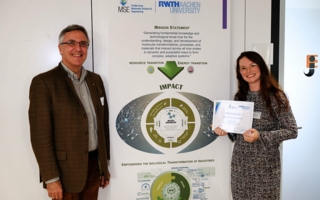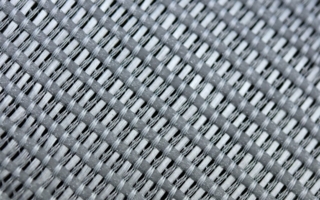15/08/2019 – Digitalisation and Artificial Intelligence — auf Deutsch lesen
Techtextil and Texprocess and Digitalisation
Automation offers a solution for labour-intensive textile production in countries with a shortage of qualified workers.
Michael Jänecke, Director Brand Management Technical Textiles and Textile Processing at Messe Frankfurt:
“The digitalisation of textile production is on the advance. Using an app to send your favourite design to a manufacturer today and receiving your individually designed, perfect-fit sneakers or shirts by tomorrow is no longer pie in the sky. However, complex production, processing and logistics are required to make this possible. Micro-factories with networked processes are the progressive approach to making textile processing faster, more flexible, more sustainable and more local whilst also manufacturing customised products.”
Digitalisation
The textile industry around the globe and in some high-cost industrialised countries sees a glimmer of hope that, with “smart manufacturing” concepts that deploy robotics and automation, digitalisation and artificial intelligence could go some way to restoring productivity. Although robots cannot completely replace the workforce, they can certainly take care of several processes along the textile supply chain.
Smart machines from Veit
textile network took the opportunity at Texprocess to speak to Sascha Dehl, Director of Products and Innovation at Veit. The company’s latest version of the “Shirt Finisher” can finish a shirt in 10 to 15 seconds. “This machine replaces manual tasks and is being bought by Asian, African and Latin American countries who are keen to lower production and labour costs,” states Dehl. The finisher offers maximum protection against heat.
DA Group
The DA Group, which is based in Kaiserslautern and owns brands like Dürkopp Adler, PFAFF Industrial and KSL, unveiled at this year’s Texprocess a whole series of industrial sewing machines, systems, sewing robots and welding machines, all clearly set out in production groups such as Shirt/Blouse, Trousers/Skirts, Blazers, Jeans, Welding, Footwear/Leather, Airbags/Tyre Cord, Technical Textiles, Upholstery and Automotive as well as Qondac (Industry 4.0 solution).
Dietrich Eickhoff, CEO of the Dürkopp Adler Group, commented that the new M-Type Delta marks “the advent of a new era in industrial sewing”. Presented with the Texprocess Innovation Award, the new sewing system is a fully digitalised industrial sewing machine for textiles which does not need any conversion. This is down, among other things, to the new sewing kinematics, which immediately achieve the best possible sewing results without having to make any mechanical changes to the machine. The operator does not need much training as the machine gives clear video instructions. Equipped with innovative sensor technology, the M-Type Delta almost completely eradicates the loss of valuable materials caused by missing stitches or thread.
Pfaff and KSL
Presented at Texprocess, the Pfaff 8311 constitutes a new generation of ultrasonic welding machines. Besides being able to regulate both the speed and welding power, the latter can actually be measured and maintained at a constant level during the welding process. The machine is also easier to set up and operate. A cutting blade to the right of the welding seam can be switched on and off.
KSL showed two CNC sewing machines with 360° rotating sewing heads for perfect seams in multi-directional sewing. The KL 110 is equipped with the new DACcad Professional, which allows complex seam designs, whilst lowering machine set-up costs and improving the quality of the material holders. The KL 311 was exhibited together with the innovative and intelligent Vision System, which compensates for tolerances that have developed along the seam due to material shrinkage or occurring, for example, during perforation. KSL also showed the KL 500 robot unit (with a KL 558 sewing head), a complete 3D sewing cell very much like the ones used by the global automotive industry in the production of dashboards. The machine can stitch entire dashboards whilst achieving high levels of efficiency, reliability and reproducibility.
Read the whole article in the upcoming issue 9-10/2019 with publication date 27 August 2019.
You can find the subscription here.




